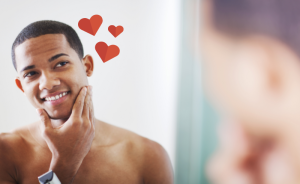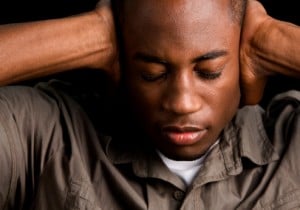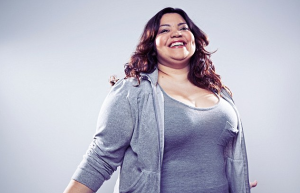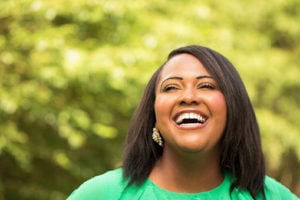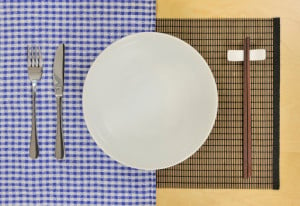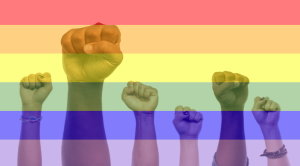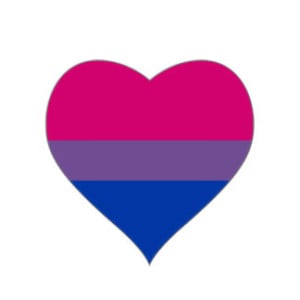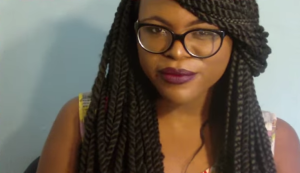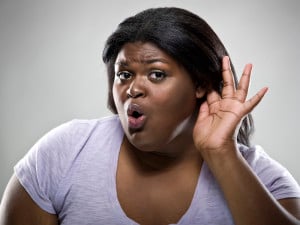When I was a teenager, I was vocally adamant about not being attracted to other feminine gay boys.
I was, at that point, the amalgamation of my fear, anger, angst, confusion, and self-loathing.
I think back to those days and wish I could go back in time, not to check or lecture myself, but to give myself the love I wasn’t getting anywhere else.
I was in a bad place. I knew I talked like what people imagine gay men talk like. I knew I swished my hips when I walked. I knew I stood out.
Because people either ignored these things altogether or had something negative to say. I began to see the things that made me different as bad. That’s all that the world had ever showed me.
I hated people like me because I thought myself something worth hating.
No one celebrated feminine gay men, and I wasn’t strong or independent enough to stand on my own and celebrate myself. I desperately needed validation.
To be honest, I didn’t even realize I hated myself as much as I was conscious of the fact that I hated others. I thought myself above the stereotypes – I was not like those gays, I told myself.
I saw other feminine gay boys as caricatures and myself as a fully three-dimensional person. I told any one who would listen that I would never date one.
It wasn’t until, out of love, my uncle checked me and showed me that my ideologies were not only harmful to myself but would be perceived as wholly problematic by others.
He was the first to see that I was spiraling out of control, into a place where I would’ve either ended up alone or in unbalanced relationships in which I’s ultimately position myself as the lesser because of my gender expression.
He sat there with me that night, on the couch opposite me, and asked me a simple question: Why?
I tried desperately to explain my thought process, hoping somehow that my distaste for feminine gay men was justified – that I would still be in the right. But I couldn’t seem to find an answer.
I didn’t find all the answers that night, or the next week, or month, but he set me on the path to self-love, out of the shadow of an unfortunately homonormative influence.
I now understand that I was partially a victim of a system of representation that benefits from portraying all minority groups as extreme – and partially a victim of the self-loathing that often accompanies the soul-searching years of adolescence.
I loathe using the word victim, but it seems the most accurate in terms of the young, feminine gay male experience – an experience in which we’re never even given a shot to love ourselves because we’re told not to from the start.
And without a powerful support system, we’re doomed to believe that we’re undesirable and unlovable way past our teenaged years.
Truth is, even as a young adult I struggle with loving my sexuality and gender expression and their intersections. I hear aggression-tinged comments from men for the way I dress, for how I walk, and for just existing as my most authentic self. I feel their eyes probe me with disgust. I instinctively look away from them.
I may struggle with loving myself, but I succeed. I’ve come to see that the femininity I possess is powerful.
The mainstream gay movement is afraid of gays like us, as more and more they attempt to abandon radical queerness for homonormative integration.
We’re beautiful warriors. But what does it mean to hear that from me?
Below are some strategies to remind you that you are a beautiful warrior despite living in a world that tells you to think every way but that way.
1. Recognize That Your Femininity Is Powerful
I believe people can be envious of feminine gay men, because we stand strong, loud and proud, in a world that has historically, and continues to, try to silence people like us.
People see our shamelessness and bravery, and instead of learning from this power they attempt to soak it in ill-conceived theories about what our gender expression says about our morality, worth, and humanity.
Regardless of what they say, remember that we are three-dimensional human beings with a heart, brain, and soul like theirs.
It’s more than just envy and jealousy, however.
Anti-femme sentiments and misogyny play are the dominant precursors of anti-feminine gay male behaviors.
As you probably know, society doesn’t respect women. Society simultaneously loves the heteronormative value that dictates that femininity is for women. So because society doesn’t respect women, it doesn’t respect femininity.
On the other hand, society respects men and what it assumes as male related things like “masculinity.” Society wants men that “act like men.”
Because men are limited to a usually very toxic performance of masculinity as the default gender expression, they are prevented from exploring a full range of expressions – which is where the non-unpacked jealousy of feminine gay men comes from.
Regardless of what they say, your femininity is liberation and your femininity is powerful.
You do what men are told not to, and what so many wish they could.
Going against the grain, and standing out from the group, is what separates the leaders from the followers.
2. Understand Homonormativity and How It Works
An in-depth, 101-guide on homonormativity can be found here, but for the purposes of this article I’ll unpack the topic briefly in terms of how it relates to cis, gay males.
Homonormativity is an insidious trend, which establishes an unyielding hierarchy in the queer community.
In the world of cis, gay males this system promotes, empowers, and otherwise glorifies those who are able to mimic heteronormative standards (as in, folks AMAB should be masculine, muscular, and heterosexual).
Essentially the more stereotypically “straight” you appear, the better you are.
This is a social construct.
“Straight-acting” gay men are privileged because society wills it to be that way.
There’s nothing wrong with you if you don’t fit into that tiny box. There’s something wrong with this world that attempts to enforce it.
Homonormativity tells you that something is wrong with you, and understanding it works is key to escaping its influence.
The function of this sort of social construct is to convince people that there are such things as “right” and “normal.” As long as you’re on the outside of “right” and “normal,” you may feel like you deserve the poor treatment you get.
Understanding that homonormativity does not serve queer people, but rather discriminates and pits them against one another, showed me that society wanted me to be more like them, which only made me want to be more like myself.
3. Connect with Other People Like You
It is often an immense struggle to find ourselves beautiful in a world that tells us we’re everything but.
I rarely, if ever, saw my feminity as something cute or charming. It wasn’t until I met my first feminine boyfriend that things began to change.
I was able to find him attractive because I was head over heels for him. And being head over heels for him meant that I loved his femininity as much as every other part of him.
It suddenly hit me one day that all the things I loved about him were things I could love about myself, but had never thought to.
Meeting other feminine gay men has allowed me to become the most fully realized version of myself – a person who wears their femininity with pride, a person who recognizes how strong they are for growing up in a “glass closet,” and a person who is open to new people and new experiences – not just those approved by a homonormative queer society.
Dropping “attraction” as an excuse to push feminine men away forced me to interact with not only new people, but also myself. I was challenged to see myself in people who acted like me, people who had faced many of the same unique challenges I had.
I was forced to think of people as people, instead of as caricatures.
When you do that, you find not only the humanity in others, but also the humanity in yourself.
4. Ignore Mainstream Media
Gay men in the media are still poorly represented, in many ways.
Think about this: How many movies or TV shows have you seen in which the campy, feminine gay man was the object of the main character’s deep love or affection?
Flip that question just a bit by removing campy, and adding in masculine instead of feminine, and you’ve got yourself a common storyline of gay male love.
Don’t internalize the lesser-than feeling.
Just count yourself among the countless groups in the world that are poorly represented or underrepresented, and find comfort in that.
If you’re looking for positive queer media, look no further than Steven Universe, the breakout Cartoon Network series that empowers individuals of all identities and gender expressions.
If cartoons aren’t your thing, and you still want more, check out this gay and queer media guide from Mic.
5. Create Stories of Your Own
You don’t have to write these stories down or film them or anything. Sometimes it can be empowering just to imagine heroes that look and act like you doing all the things we see in the movies.
Like imagine Harry Potter, except feminine and gay.
It’s an empowering act on its own just to know that you can be just as much a hero as any white, heterosexual, masculine man.
6. Give Yourself Time – Lots and Lots of Time
I want to speak directly to you, the reader, and tell you that I won’t judge you if you don’t leave this article with a burning passion for feminine gay men hotter than one thousand suns, because that wasn’t the purpose of this story.
I found beauty in my reflection, beauty in the prominent switch in my hips when I walk, and beauty in my high-pitched voice. And let me tell you, it feels absolutely, out of this world amazing.
Learning to love myself allowed me in turn to love other people – especially others who resembled me.
All it took for me to make this change was to open my mind and my heart and to be critical of the world around me.
It’s beyond difficult to step outside of society’s standards for sexuality and gender expression, but it’s also beyond worth it.
You don’t have to be a queen like RuPaul or a princess like me to embrace male femininity. Do you to the fullest and if people can’t get with it, they can get lost.
[do_widget id=’text-101′]
Jayson Flores is a Contributing Writer for Everyday Feminism and the founder and editor of Gay on a Budget, a punk, emotional, intersectional blog with a little bit of sass. They’re working on their fiction in hopes of becoming the next J.K. Rowling, and their real-world writing in hopes of becoming the next Tavi Gevinson. Jayson can be found on Tumblr, and be contacted at [email protected] or on Twitter @gayonabudget.
Search our 3000+ articles!
Read our articles about:
Our online racial justice training
Used by hundreds of universities, non-profits, and businesses.
Click to learn more
Most Read Articles
- « Previous
- 1
- …
- 30
- 31
- 32


